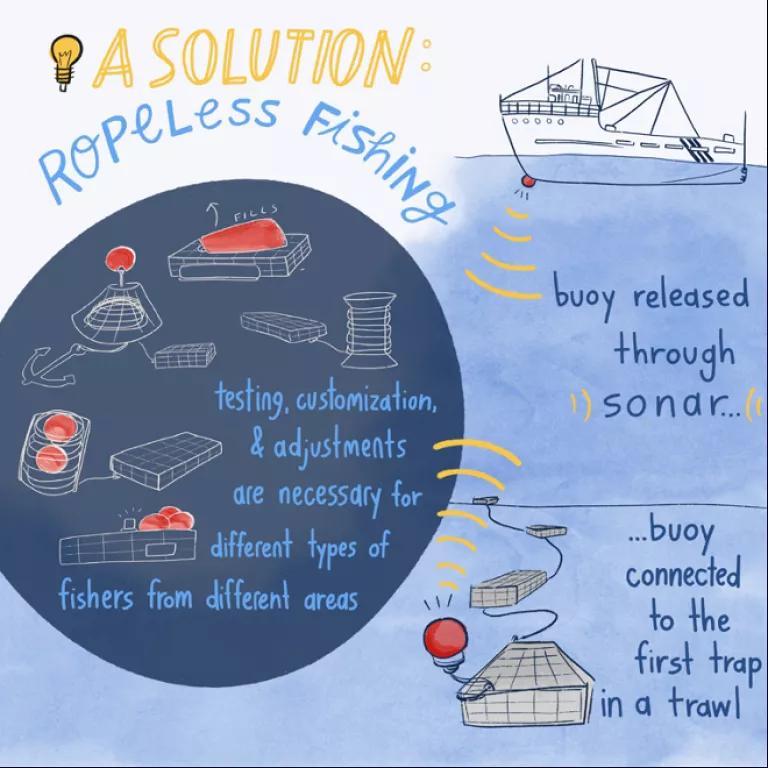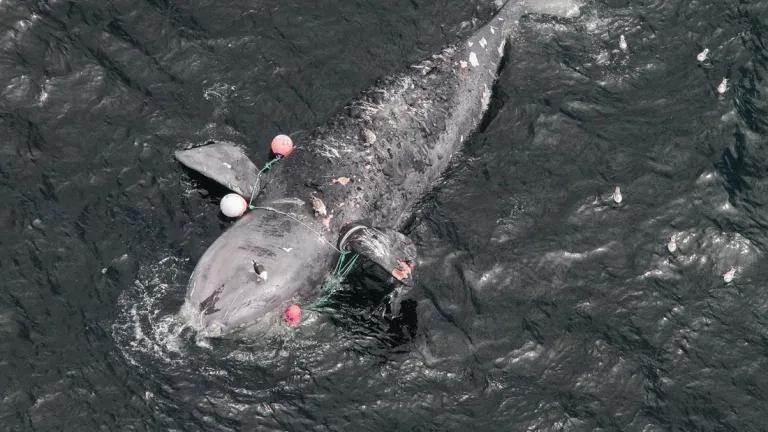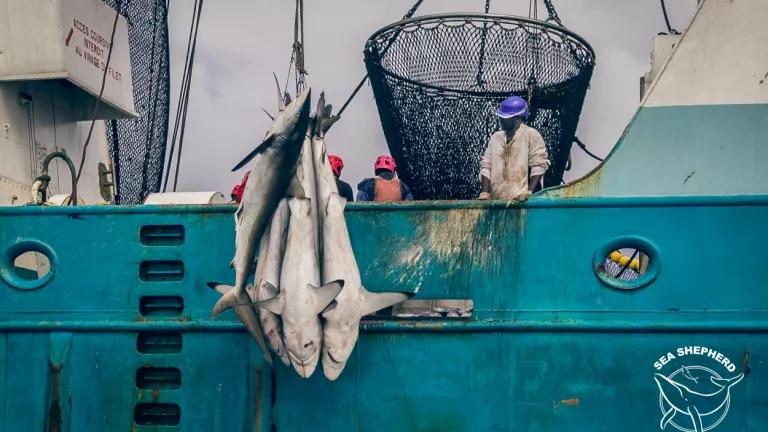NRDC Supports Seafood Watch Move to “Red List” American Lobster and Snow Crab
This science-based and precautionary recommendation can help protect critically endangered North Atlantic right whales.

An 11-year old male nicknamed Cottontail is found dead off South Carolina after suffering a severe entanglement in heavy fishing gear for over four months
NRDC has submitted a letter in strong support of the Monterey Bay Aquarium Seafood Watch program’s science-based and precautionary recommendation that consumers avoid American lobster caught in the U.S. and Canada, as well as snow crab caught off Canada’s Atlantic Coast, because of impacts to critically endangered North Atlantic right whales.
The North Atlantic right whale is one of the most endangered large whales on Earth and has been rapidly declining for the past decade. Fewer than 340 individuals now remain, including fewer than 70 reproductively active females—the lifeblood of the species.
Losing even one North Atlantic right whale per year as a result of human impacts jeopardizes the survival of the species. Yet an average of 31 deaths and serious injuries are estimated to have occurred each year from 2015-2019, the vast majority caused by entanglements in commercial fishing gear.
North Atlantic right whales are particularly vulnerable to entanglement in the vertical buoy lines associated with fixed-bottom fishing gear, such as the traps and pots used to catch lobster and crab. Even non-fatal entanglements negatively impact overall health and body condition and impair the ability to successfully produce or raise a calf. These “sublethal” impacts make it even more difficult for the species to ever recover.

Entanglement in buoy lines used for fishing American lobster and snow crab are driving the North Atlantic right whales to extinction.
Launched in 1999, Seafood Watch informs – directly or indirectly – the purchasing decisions of more than 50 NGOs worldwide and more than 25,000 business locations. The program maintains formal partnerships with major seafood buyers, including Bon Appetit, Compass Group, Disney, and Whole Foods.
Seafood Watch regularly updates its fisheries and aquaculture assessments to reflect the latest scientific information and ensure fisheries and aquaculture are harvested in ways that protect the ocean and secure a long-term supply of seafood. According to Seafood Watch’s standards, fisheries or aquaculture with a red rating have a high risk of causing harm to other marine life or the environment. Seafood Watch advises consumers to avoid buying red listed seafood.
After reviewing the most up-to-date scientific information, Seafood Watch recently updated 14 of its assessments, which resulted in draft red ratings for gear types of concern for North Atlantic right whale entanglements, notably pots, traps, and gillnets. The draft red ratings were driven by the risk these fisheries pose to the North Atlantic right whale, as well as the ineffectiveness of management measures currently in place to address that risk.
NRDC submitted comments to Seafood Watch in support of draft red listing of three fisheries currently contributing most significantly to North Atlantic right whale entanglements: American lobster caught in the Northeast United States; American lobster caught in Northwest Atlantic Canada; and Snow Crab caught off Canada’s Atlantic Coast. Our comments outline evidence related to the rapid decline of the North Atlantic right whale, the high levels of fishing mortality and sublethal impacts resulting from the three fisheries, and how current strategies to reduce risk of entanglement in all three fisheries are insufficient, unproven, and, in some cases, ineffective. These considerations correspond to three of the criteria used by Seafood Watch to assess and rate seafood.
We also highlighted NRDC’s view that a key indicator of the sustainability of a trap or pot fishery operating in areas that overlap with large whale and sea turtle habitat is participation in partnerships to test and trial ropeless fishing systems. Ropeless fishing systems virtually eliminate risk of entanglement in vertical buoy lines while enabling fisheries to remain in operation.

Ropeless fishing systems protect whales from entanglements and enable fisheries to operate sustainably.
Jessica Russo/NRDC
The Seafood Watch draft red ratings follow a similar recommendation issued by WWF-Hong Kong, which indicated that its decision to list American lobster as “Red-Avoid” was made following the listing of the North Atlantic right whale as critically endangered by the International Union for Conservation of Nature (IUCN). Bycatch and entanglement in lobster fishing gear were identified as key threats to the species.
Entanglements of right whales also led to the suspension of the Marine Stewardship Council (MSC) certification of the Gulf of Maine lobster fishery and Maritime Canada’s Gulf of Saint Lawrence snow crab fishery. Subsequently the Gulf of Maine lobster fishery suspension was lifted while the fishery undergoes reassessment, and the snow crab fishery entered a Fisheries Improvement Project (FIP) to advance gear innovations to reduce entanglement risk.
Consumers are increasingly interested in the sustainability of their seafood. Certifications by eco-labels and advisory lists are often a key factor in a consumer’s decision to purchase a seafood product. We thank Seafood Watch for following the science and serving as a trusted resource to seafood consumers in the U.S. and internationally.




